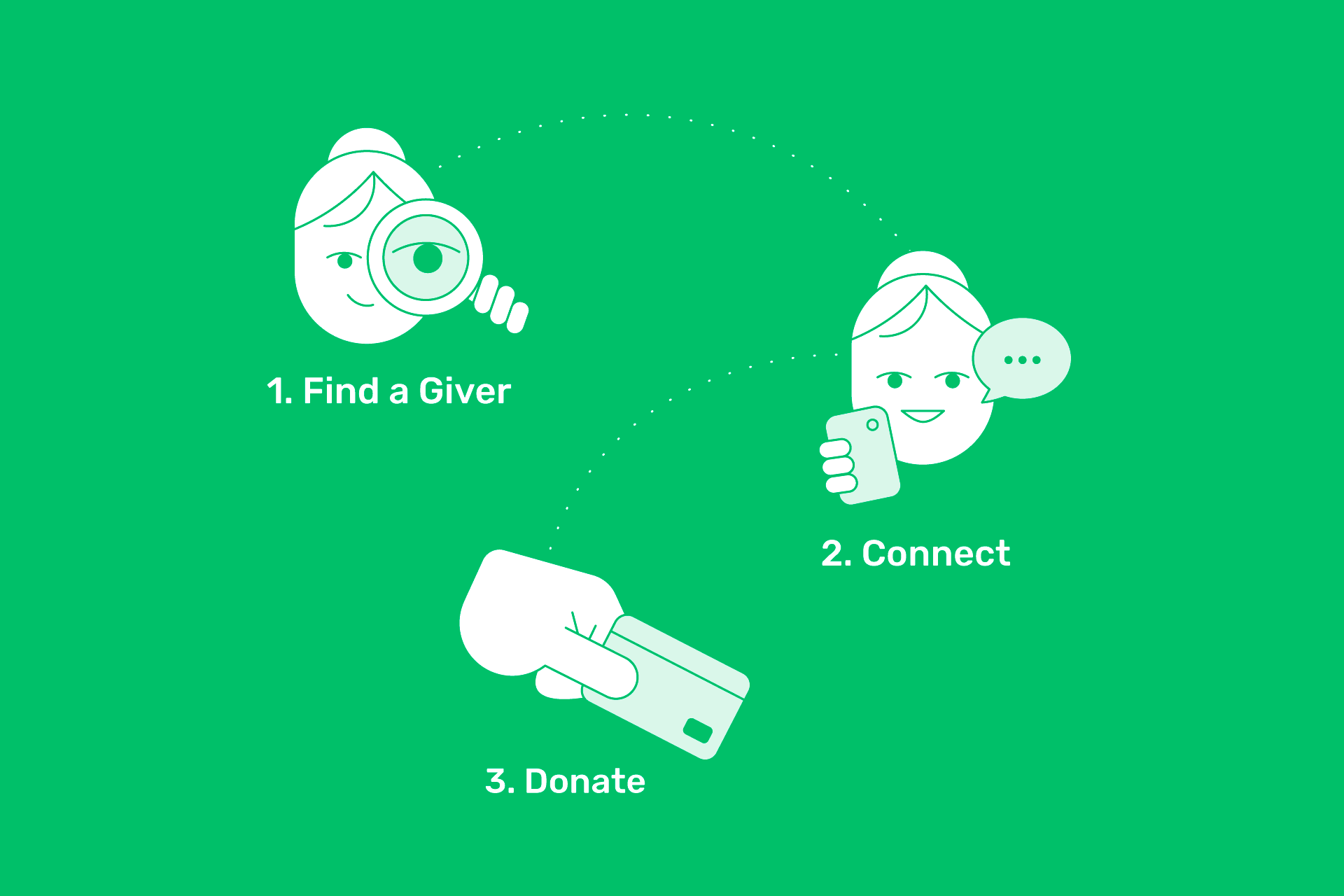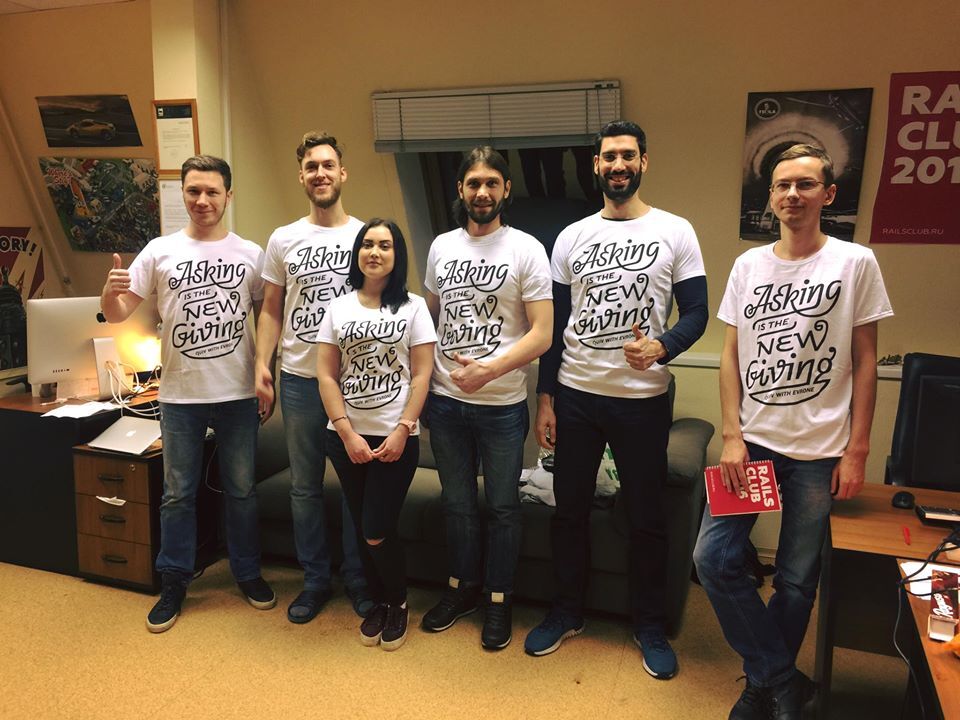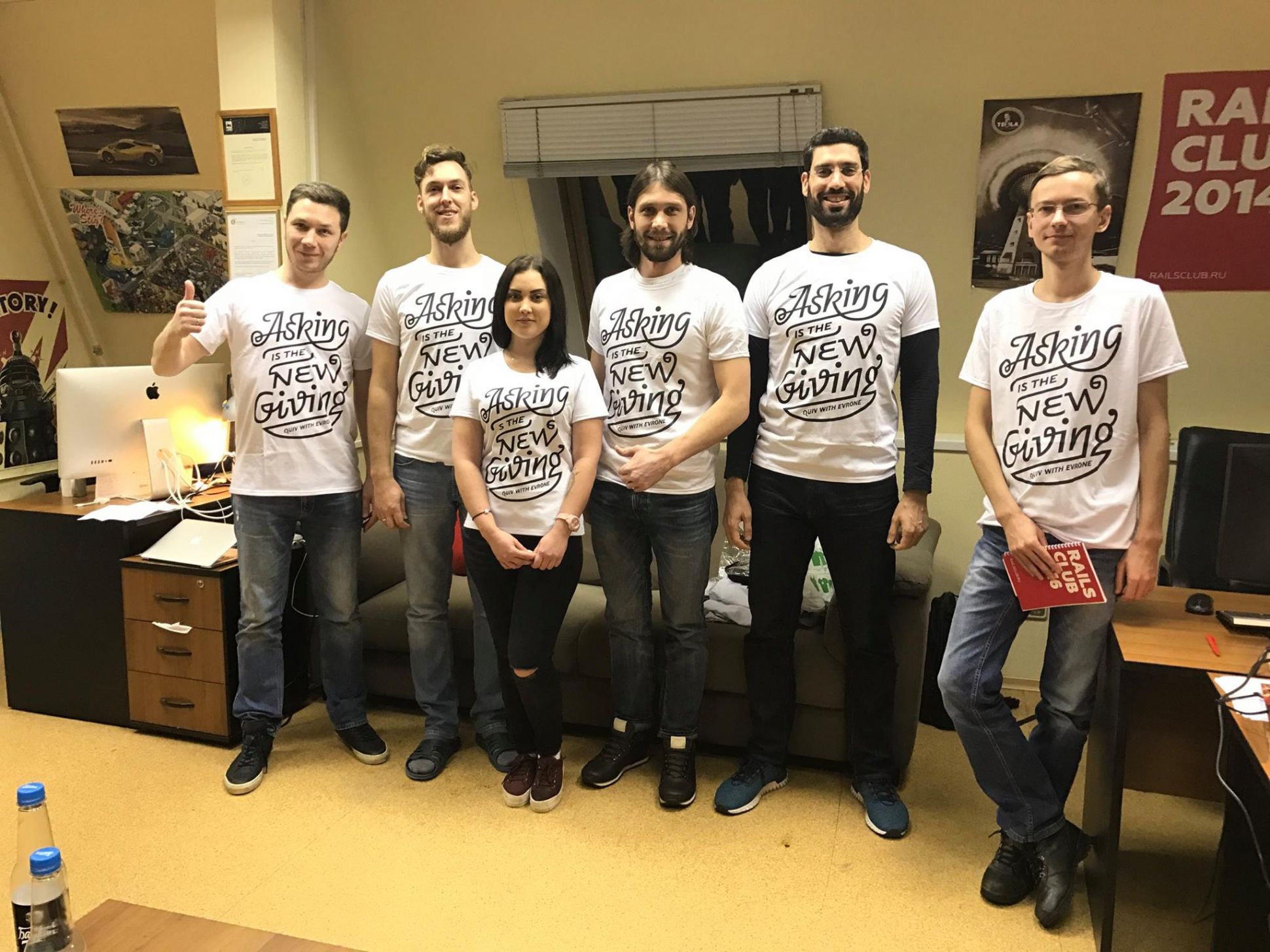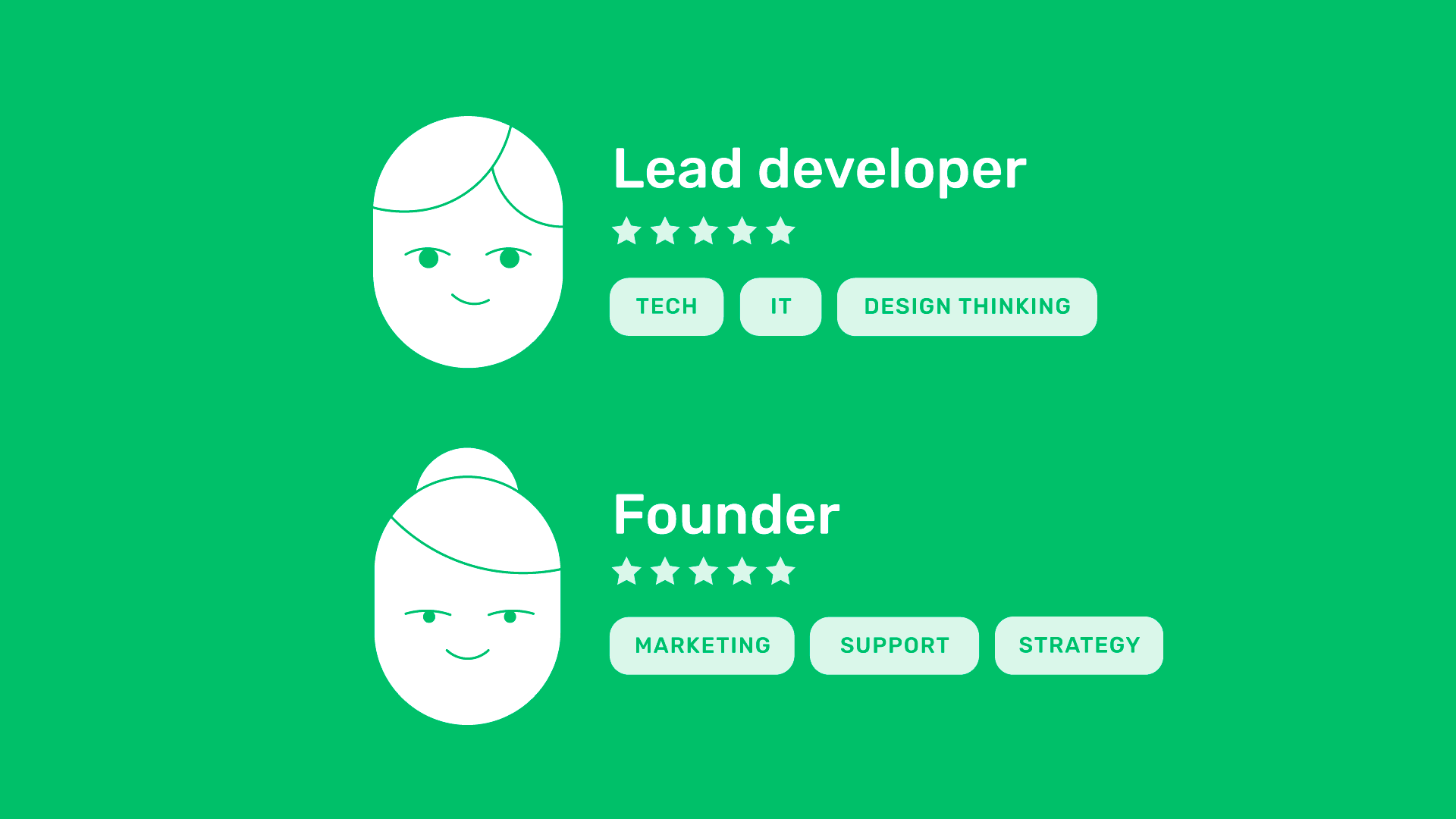Asking is the new giving: developing the Quiv digital charity platform
Read Evrone’s case study about developing Quiv social startup, a digital charity platform that enables people to connect with experts and pick their brains in return for a charitable donation.
Donating to charities is a part of American life. According to Giving USA’s annual report, American individuals, estates, foundations, and corporations gave an estimated $427.71 billion to U.S. charities in 2018. Although these numbers are huge, Amit Shafrir felt that they could grow even more if the sector capitalized on the advantages of using new internet technologies. So, the seasoned entrepreneur and tech leader investigated how to use information technology in fundraising to help people donate to charities in a more meaningful way.
Being an entrepreneur himself, Amit knew how valuable it can be to pick an expert’s brain and get a piece of useful advice, a reference, or a connection. He decided to tie this opportunity together with a fundraising platform for charities, and so Quiv was born.
The name Quiv comes from the words “QUestions” and “gIVing” (or gIVe). It was created with the goal of enabling people to connect with experts and pick their brains, but also of giving those experts a good reason to let their brains be picked. If you find yourself in need of a good piece of advice, you can use Quiv to ask a seasoned individual, and whatever you pay for this advice will go to the charity the expert cares about. Simple! But in order to bring Quiv to life, Amit needed a team of creatives and engineers that had the expertise, technologies, and tools to accelerate software development and deliver the solution he envisioned.
Quiv’s team turned to Evrone, we had a kick-off meeting in early December, 2015, and soon got started on the product development.
Adding value to professional communications
We needed to add value to the communication chain, giving the consultants satisfaction in the knowledge that their efforts were for a good cause. They could help a charity foundation that they were passionate about, just by donating a little of their time, knowledge, and experience.
For example, say the world champion in alpine skiing cares deeply about the Global Conservation Fund’s work. However, sharing his alpine skiing expertise will not likely be of much help to them. But, if there is a businessman who is going to build a ski lodge in the mountains, then the champion possesses invaluable information for him. The champion can give him important details about the sport and its participants and tell him how to set up the ideal place to relax between ski sessions. For this type of consultation with a knowledgeable expert, the businessman will happily donate money to the champion’s preferred charity.
So, we needed to create a platform where the experts, the people needing advice, and the charities could all come together. We also had to set up a channel for sending money to the correct charities. Quiv’s team entrusted Evrone with the development of a service that met all of these requirements.

How does digital charity service work?
Users register with the service and indicate what competencies they have in which areas, where they work, and the cost of consultations. Then, they select a fund for donations to go to. After that, they can both share expertise and request it from others.
Several types of consultations are available:
- One written question, answered within three days.
- A chat where you can communicate for up to three days.
- A 15 minute phone call.
Users find people with the necessary expertise, send an application for a consultation, and pay for the type of consultation they want. A commission is deducted from the payment, and the remaining amount goes to the expert’s chosen charity fund.
What services constitute the Quiv platform?
The main challenge the team had to focus on was the interaction model of the project architecture and finding the technologies and tools to accelerate software development. Since there were multiple ways a connection could be established, it needed to facilitate emails, SMS, and phone calls.
We made several integrations for:
- Telephony
- Social media sharing
- Internal website searches
- Accounting
Most of the interactions were implemented with the new-at-the-time cloud communications service. The service can control the conversation, set rules for calling people, and organize an interactive actions menu. It also makes it possible to record the conversation and store it, in case of a disagreement about the value of the consultation.
While working on Quiv.com the team solved such challenges of charity organizations as, for instance, automating the targeted transfer of funds while providing a single interface for making payments. The process of forming the communication between the users was quite challenging, especially organizing calls in a way that the users wouldn't exchange their phone numbers. It was worth it, and it was great to see such stars as Jimmy Wales and Robert Scoble registered on the platform.
It was essential to build a seamless integration with third-party API authentication and social media sharing with LinkedIn, Facebook, and Twitter. Every user has a LinkedIn-style public profile, which helps those who are looking for consultations to find the right person.
We also incorporated a search feature to allow users to find help faster. The site search integration contributes to the fantastic UI and empowers users to find help based on the topic, whether it concerns certain skills, companies, technologies, etc.
Money transfer automation was also a difficult challenge. There are more than 2 million charitable foundations in the USA, and they all have different rules for accepting donations. Some take only checks, while others accept bank transfers, and some are set up to receive funds through electronic payment systems. The automation of banking operations was further complicated by tax legislation.
Boost your user engagement like Quiv with a seamless, intuitive platform. Let's create something extraordinary together.
Adding the Stripe payment system to the chain gave us accounting software integration, where you just need to specify the purpose for the transfer.

Technical stack
All these services are tied up through the backend, which is written, like the entire project, in the Ruby language. The project also relies heavily on the capabilities of Amazon. Incorporating the ready-made solutions allowed the team to focus on development, rather than being distracted by the administration of services. Amazon provides an excellent level of SLA, as well as a huge fault tolerance, as compared to proprietary solutions. Plus, thanks to a single interface, the complexity of working with Amazon is several times lower than with individual, poorly-structured services. This eliminated the need for additional admins and DevOps. Also, our QA engineer, who was involved in the project, conducted functional testing to ensure the quality of development.
Speeding up with boot camps
One thing our team loved about this project was the coding boot camps that were conducted four times during the product development. Now we are great at managing distributed teams, but these were special days when we had to accelerate development with coding boot camp, pushing the limits of human abilities to ship code 10x faster. One week of this shoulder-to-shoulder work helped the project meet some very intense deadlines.
For Quiv, we held 4 of these boot camps, which allowed us to release updates of the existing product in the shortest possible time. For example, one of the boot camps was dedicated to a complete redesign. Under usual development conditions, such a task would require several weeks, but with the boot camp, we managed to complete it in just 5 days.
To make this stage in the joint work of Quiv and Evrone interesting and memorable, we designed T-shirts for boot camp participants. It was our way of showing our investment in the project and how much we appreciated the opportunity to be a part of a solution that would bring so much value to so many people.


Savings on integration
Many business tasks can now be implemented through third-party services, by integrating them into your system. If the task is to quickly assemble a project and check its model on the market, then this is a suitable option, which will be much cheaper than writing your own services.
When working with third-party services, you have to focus on the correct integration and configuration of the entire system as a whole, which Evrone did when we developed Quiv.

Quiv’s success
Today, there are 1,032 users and 7,958 funds registered on Quiv. Consultations are available with Wikipedia founder Jimmy Wales; Uber investor Jason Calacanis; Don Dodge, Developer Advocate at Google; David Cohen, founder at Techstars, and many others.
In 2019, we completed work on the project. Now Quiv is developed by the client’s own team. They’ve updated the code base of the project, made large-scale refactoring, and added a lot of cool features. Sometimes we get in touch, help them, and answer questions that arise. Watching the service succeed is a great joy for Evrone!
Whether you want to create your own service and focus on web product development process optimization from the first step, or you just need a payment system integration, fill out the form below and our specialists will contact you soon to discuss your project.
